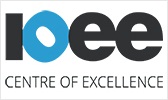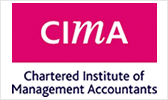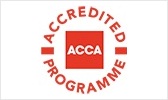Overview
Get your money’s worth
If you’re interested in the financial side of running a business, this course could be the perfect preparation for your career. BA (Hons) Business Management [Finance Pathway] will set you apart from other job applicants by giving you an understanding of the theory and practical applications of financial management.
In LSBU Business School, our focus is on application, so we include live case studies, guest lectures and speakers, and you have opportunities to put your skills in to practice with consulting, projects, live briefs and competitions. We also have a dedicated Business School Commercial Experience and Employability Team, helping you get access to the career opportunities you want. You can also choose to take this course with a one year placement; a great way to boost your networks and employability.
Why Business Management with Finance at LSBU?
| ModeFull-time | Duration3 years | Start dateSeptember | Application codeN237 | Application method UCAS |
| ModeFull-time (with placement) | Duration4 years | Start dateSeptember | Application codeN237 | Application method UCAS |
| ModeFull-time | Duration3 years | Start dateJanuary | Application codeN237 | Application method UCAS |
| ModeFull-time (with placement) | Duration4 years | Start dateJanuary | Application codeN237 | Application method UCAS |
Watch our video to see how you can make yourself at home studying at LSBU.
Location
London South Bank University student union is located at 103 Borough Rd, London SE1 0AA.
If you are visiting our Southwark Campus, you may wish to use our downloadable campus map (PNG File 466 KB). For information on accessibility, see our DisabledGo access guides. See our location page for more details.
Entry Level Requirements
Need further information? Call us on 0800 923 8888 to discuss entry requirements.
112 UCAS points
Or equivalent level 3 qualifications.
If you do not meet the entry criteria above we also review any previous skills, knowledge or experience you have gained outside of your education and are happy to talk through any extenuating circumstances you feel relevant.
Visit UCAS for guidance on the tariff.
Choose your country
Select country here:
Missing English and Maths qualifications?
If you do not have the required English and Maths qualifications needed to satisfy the entry requirements for this programme, we have courses available at our partner College that you can take to upskill in these areas. Find out more at South Bank College.
Advanced entry
If you have already completed some studies at another university, we may be able to consider you for advanced entry. Please see our advanced entry page for more information.
United Kingdom
£9535
Tuition fees for home students
International
£17600
Tuition fees for international students
Tuition fees are subject to annual inflationary increases. Find out more about tuition fees for Undergraduate or Postgraduate courses.
-
Full-time
full-time
BA (Hons) Business Management [Finance] (FT) - Year 1
UK fee: £9535 International fee: £17600 AOS/LSBU code: 5801 Session code: 1FS03 Total course fee: * The full amount is subject to fee increases, the total shown below is based on current fees.
UK: £28605 International: £52800 BA (Hons) Business Management [Finance] (FT) - Year 1
UK fee: £9535 International fee: £17600 AOS/LSBU code: 5801 Session code: 1FS13 Total course fee: * The full amount is subject to fee increases, the total shown below is based on current fees.
UK: £28605 International: £52800 BA (Hons) Business Management (with Placement) [Finance] (FT) - Year 1
UK fee: £9535 International fee: £17600 AOS/LSBU code: 5802 Session code: 1FS03 Total course fee: * The full amount is subject to fee increases, the total shown below is based on current fees.
UK (excluding any optional years): £28605 UK (including any optional years): £28605 International (excluding any optional years): £52800 International (including any optional years): £52800 BA (Hons) Business Management (with Placement) [Finance] (FT) - Year 1
UK fee: £9535 International fee: £17600 AOS/LSBU code: 5802 Session code: 1FS13 Total course fee: * The full amount is subject to fee increases, the total shown below is based on current fees.
UK (excluding any optional years): £28605 UK (including any optional years): £28605 International (excluding any optional years): £52800 International (including any optional years): £52800 BA (Hons) Business Management [Finance] (FT) - Year 2
UK fee: £9535 International fee: £17600 AOS/LSBU code: 5801 Session code: 2FS03 Total course fee: * The full amount is subject to fee increases, the total shown below is based on current fees.
UK: £28605 International: £52800 BA (Hons) Business Management [Finance] (FT) - Year 2
UK fee: £9535 International fee: £17600 AOS/LSBU code: 5801 Session code: 2FS13 Total course fee: * The full amount is subject to fee increases, the total shown below is based on current fees.
UK: £28605 International: £52800 BA (Hons) Business Management (with Placement) [Finance] (FT) - Year 2
UK fee: £9535 International fee: £17600 AOS/LSBU code: 5802 Session code: 2FS03 Total course fee: * The full amount is subject to fee increases, the total shown below is based on current fees.
UK (excluding any optional years): £28605 UK (including any optional years): £28605 International (excluding any optional years): £52800 International (including any optional years): £52800 BA (Hons) Business Management (with Placement) [Finance] (FT) - Year 2
UK fee: £9535 International fee: £17600 AOS/LSBU code: 5802 Session code: 2FS13 Total course fee: * The full amount is subject to fee increases, the total shown below is based on current fees.
UK (excluding any optional years): £28605 UK (including any optional years): £28605 International (excluding any optional years): £52800 International (including any optional years): £52800 BA (Hons) Business Management [Finance] (FT) - Year 3
UK fee: £9535 International fee: £17600 AOS/LSBU code: 5801 Session code: 3FS13 Total course fee: * The full amount is subject to fee increases, the total shown below is based on current fees.
UK: £28605 International: £52800 BA (Hons) Business Management (with Placement) [Finance] (FT) - Year 3
UK fee: £0 International fee: £0 AOS/LSBU code: 5802 Session code: 3FS03 Total course fee: * The full amount is subject to fee increases, the total shown below is based on current fees.
UK (excluding any optional years): £28605 UK (including any optional years): £28605 International (excluding any optional years): £52800 International (including any optional years): £52800 BA (Hons) Business Management (with Placement) [Finance] (FT) - Year 3
UK fee: £0 International fee: £0 AOS/LSBU code: 5802 Session code: 3FS13 Total course fee: * The full amount is subject to fee increases, the total shown below is based on current fees.
UK (excluding any optional years): £28605 UK (including any optional years): £28605 International (excluding any optional years): £52800 International (including any optional years): £52800 BA (Hons) Business Management (with Placement) [Finance] (FT) - Year 4
UK fee: £9535 International fee: £17600 AOS/LSBU code: 5802 Session code: 4FS03 Total course fee: * The full amount is subject to fee increases, the total shown below is based on current fees.
UK (excluding any optional years): £28605 UK (including any optional years): £28605 International (excluding any optional years): £52800 International (including any optional years): £52800 BA (Hons) Business Management (with Placement) [Finance] (FT) - Year 4
UK fee: £9535 International fee: £17600 AOS/LSBU code: 5802 Session code: 4FS13 Total course fee: * The full amount is subject to fee increases, the total shown below is based on current fees.
UK (excluding any optional years): £28605 UK (including any optional years): £28605 International (excluding any optional years): £52800 International (including any optional years): £52800
For more information, including how and when to pay, see our fees and funding section for undergraduate students.
Please check your fee status and whether you are considered a Home, EU or International student for fee-paying purposes and for our regulatory returns, by reading the UKCISA regulations.
See our Tuition Fees Regulations (PDF File 391 KB) and Refund Policy (PDF File 775 KB).
Possible fee changes
The University reserves the right to increase its fees in line with changes to legislation, regulation and any government guidance or decisions.
The fees for international students are reviewed annually and the University reserves the right to increase the tuition fees in line with the RPIX measure of inflation up to 4 per cent.
Scholarships
We offer several types of fee reduction through our scholarships and bursaries. Find the full list and other useful information on our scholarships page.
International students
The course is not currently open to international students.
International (non Home) applicants should follow our international how to apply guide.
Home
| Mode Full-time | Duration 3 years | Start date September | Application code N237 | Application method UCAS |
| Mode Full-time (with placement) | Duration 4 years | Start date September | Application code N237 | Application method UCAS |
| Mode Full-time | Duration 3 years | Start date January | Application code N237 | Application method UCAS |
| Mode Full-time (with placement) | Duration 4 years | Start date January | Application code N237 | Application method UCAS |
Accommodation
Once we have made you an offer, you can apply for accommodation. You can rent from LSBU and you’ll deal directly with the university, not third party providers. That means we can guarantee you options to suit all budgets, with clear tenancy agreements and all-inclusive rents that include insurance for your personal belongings, internet access in each bedroom and on-site laundry facilities.
Or, if you’d rather rent privately, we can give you a list of landlords – just ask our Accommodation Service.
Read more about applying for accommodation at LSBU.
Finance
You don't need to wait for a confirmed place on a course to start applying for student finance. Read how to pay your fees as an undergraduate student.
Prepare to start
Applicant events
After you’ve received your offer we’ll send you emails about events we run to help you prepare for your course.
Welcome Week
Before you start your course we’ll send you information on what you’ll need to do before you arrive and during your first few days on campus. You can read about the process on our Welcome Week pages.
The course has been created to combine theory with current industry practice. This way, you can develop an understanding of the relevant knowledge and skills you need to apply for business management and financial roles.
Year 1
- Finance and the Economy
Introduces you to a range of economic and financial topics and shows how these can be applied to understand the world around us. The module develops your understanding of the external environment businesses face, and aspects of finance relevant to the business context. - Principles of Marketing
Provides you with an introduction to the nature and scope of marketing. It provides you with an understanding of the fundamentals within the marketing discipline and to be introduced to the understanding of marketing as a management tool. You will also be introduced to the role of marketing within the general marketplace and society. - LSBU Discovery Project
In this module you will be utilising business project frameworks, problem solving skills and ideas generation techniques that will support through the key stages required to complete a business small business project from concept to delivery. Throughout the stages of their project, and by incorporating a facilitated coaching process, you will be supported to develop key skills vital to successful leadership and management. - Data for Decision Making
The module examines a range of ways of handling, analysing and presenting quantitative information. The underlying theme is to look at data in a variety of forms, to determine the ‘story’ that this data is telling, and to use that ‘story’ to justify decisions. - Management and Organisations
This module introduces you to the basic concepts of management in organisations. It provides you with an appreciation of the complexities of organisations that affect employee behaviour within them. It introduces human resource management strategies to manage people in organisations. The module incorporates key management, organisational behaviour and people management theories and practices. - Principles of Strategy
This module aims to equip you with the knowledge of skills of basic strategic analysis. You will be exposed to the use of simple strategic tools to evaluate the business and its wider environment. They will also be able to identify creative strategic solutions to simple organisational issues. The module further aims to develop your ability to make decisions between different strategic alternatives.
Year 2
- Professional and Digital Skills
This module provides comprehensive insights into graduate employability and career development for Accounting & Finance students. It teaches you essential techniques of self-awareness building, career exploration, job search, succeeding in recruitment and selection processes and teamwork, enabling you to secure employment and thrive in the world of work. In addition, the module covers specific skills of particular relevance to Accounting & Finance students, especially hands-on Excel and accounting software skills, and also knowledge of technological innovations such as Blockchain, cryptocurrency, etc. - Operations, Logistics and Supply Chain Management
This module demonstrates the importance of operations, logistics and the supply chain while also considering procurement and negotiation strategies and techniques within business services, retail and manufacturing environments. You will analyse best practice in logistics and supply chain management and the effects of disruptive technological and communication developments on business operations. - Effective Business Negotiations
Negotiation is a core business skill integral to some degree in the vast majority of commercial and even non-commercial business activities. Successful negotiation is a process that involves a number of essential soft skills including effective questioning, effective listening, critical thinking and empathy. In addition, planning, situational analysis and the ability to recognise and evaluate the shared, differing and conflicting interests of the parties involved is key. - Responsible Business
The corporate responsibility agenda of the 90s was about ticking boxes. Now, companies are more progressive with a shift in focus towards social value, and understanding that responsibility is a commercial imperative, embedded in strategy to provide a competitive advantage. This module outlines some of the resources and strategies adapted from management and leadership across industries. With a focus on sustainable development the module introduces you to sustainability narratives and challenges stemming from the scarcity of resources, and the inherent concerns from the complexity of the leadership issues involved towards an adaptive and assimilated sustainability planning. - Digital Transformation
This module introduces you to the basic theory, concepts, and techniques of digital business transformation. It focuses on developing the thought processes and practical skills needed to identify, analyse, evaluate and apply digital technologies in order to address real-world business problems. - Finance in a Digital World
This module is an introduction to the basic principles of contemporary finance and investment. It seeks to provide an elementary knowledge of the subject, simultaneously highlighting the essential links between accounting & finance concepts and practical financial management in a digital world; you would thereby be provided with a firm foundation in the theoretical as well as practical aspects of financial decision-making in a digitised marketplace.
Year 3
Optional placement year.
Year 4
- Financial Decision Making
This module is about managing the finance function in a business enterprise by making value-maximising financial decisions. Financial value is a function of cash, time and opportunity cost – all key factors that financial managers need to consider when allocating scarce resources to competing uses. Since value maximisation requires the optimum balance of return and risk, the management of risk will be an important theme of the module. You would thereby be provided with a firm foundation in the theoretical as well as practical aspects of financial decision-making. - Leadership, Strategy & Change
This module examines the scope and nature of leadership, strategic management and change and approaches to establishing organisational objectives. It demonstrates the link between strategy, resources, markets, innovation, technology and finances available. The impact of the size and structure of organisations as well as external factors impacting strategy including globalization and sustainability are also considered. - Comparative International Management In an ever broadening set of interdependent relationships among countries, the need to recognise the opportunities and restrictions presented by different world markets has gained significance. This module is designed to impart you with the analytical skills to assess the socio-economic differences between countries, and to identify how these differences impact business and management behaviour across countries through comparative studies. It is based on the rationale that students understanding as managers will be expected to analyse and compare market and business environments in different countries to attain business success. The module develops your understanding of business practice in different regions and you apply analytical management tools and qualitative research methodologies to critically evaluate and gain an understanding of comparative international management practices.
- Global Finance and Technology This module introduces you to the concept of International Finance and the role of exchange rates and their determination in financial markets. The module covers theories of exchange rate determination and the difference between fixed and floating exchange rate systems. It further offers an excursion into modern financial topics such as cryptocurrencies, Fintech and automation in the banking sector as key drivers in the finance industry. You will be exposed to the regulatory challenges, which come with financial innovation. The module will feature guest speakers from the industry to introduce you to various financial software platforms.
- Research Project
This final year module allows you to consolidate their learning over the whole of their degree by undertaking an independent small-scale research project, with a business or management focus. - Applied Project
This final year module allows students returning from their undergraduate placement year to consolidate their learning on their degree and industrial experience by undertaking an applied project.
Choose 1 option from
Careers
Employability Service
At LSBU, we want to set you up for a successful career. During your studies – and for two years after you graduate – you’ll have access to our Employability Service, which includes:
- An online board where you can see a wide range of placements: part-time, full-time or voluntary. You can also drop in to see our Job Shop advisers, who are always available to help you take the next step in your search.
- Our Careers Gym offering group workshops on CVs, interview techniques and finding work experience, as well as regular presentations from employers across a range of sectors.
Our Student Enterprise team can also help you start your own business and develop valuable entrepreneurial skills.
All the way through the course, employability skills are promoted by our academic staff and in School Employability Team. This includes teaching via a dedicated employability module in business practices, guest speakers from industry, business insights, graduate start-up and entrepreneur schemes.
You’ll be prepared when you graduate for a career in business, management and finance, and our graduates have gone onto jobs such as:
- Consultant at JCW
- Financial Market Trader
- Finance Intern at Eversholt Rail Group
- Operations and Administration at The Rose Theatre
- Administration Assistant at Mars Capital
- National Manager at Elevation Networks
- Business Controller at L'Oréal Luxe Travel Retail Monde
In recognition of the School’s entrepreneurial culture and leading-edge practice, it has Centre of Excellence status: the IoEE’s (Institute of Enterprise and Entrepreneurs) flagship organisational accreditation for organisations that promote and deliver enterprise skills development.
This course is accredited by the Chartered Institute of Management Accountants (CIMA) is the world's largest professional body of management accountants offering the most relevant accounting qualification for a career in business. The course is also accredited by ACCA.

- Centre of Excellence status is the IoEE’s (Institute of Enterprise and Entrepreneurs) flagship organisational accreditation for organisations that promote and deliver enterprise skills development – and is in recognition of the School’s entrepreneurial culture and leading-edge practice.

- The Chartered Institute of Management Accountants (CIMA) is the world's largest professional body of management accountants offering the most relevant accounting qualification for a career in business. If you are considering a career in finance and business, the CIMA qualification will open doors with employers all over the world. On completing this course you'll be able to apply for exemptions for papers C02-C05. If you choose module elective 'Management accounting for decision making' you can apply for exemption to C01. With C01-05 you can apply for the CIMA Certificate in Business Accounting.

- The Association of Chartered Certified Accountants (ACCA) was founded in 1904; the ACCA is the global body for professional accountants offering the Chartered Certified Accountant qualification. This course provides exemptions for ACCA paper F1.
Memberships

LSBU Business School is an esteemed member institution of the Business Graduates Association (BGA), an international membership and quality assurance body of world-leading and high-potential Business Schools who share a commitment for responsible management practices and lifelong learning, and are looking to provide positive impact on their students, communities, and the economy as a whole. BGA is the sister brand to the Association of MBAs (AMBA), the world's impartial authority on postgraduate management education.
As a BGA member institution, students of LSBU Business School are able to access BGA's individual membership, which offers a range of tools and resources designed to support the professional and personal development of business students and graduates, free of charge. This includes CV building services, a job search function, skill assessments, thought-leadership, partner discounts and much more.
Placements
One of the most exciting parts of this course is the opportunity to undertake a one year work-placement in your third year. The course team work closely with both our Placement Officers in the Student Centre and Enterprise Centre to ensure you are placed in suitable working environments. You'll be given guidance and assistance with respect to finding a placement, CV preparation and the application process. Most placements are within the London area. Or, if you have an idea for a new business you’d like to work on, you can spend your third year developing this in our Enterprise Centre.
Teaching and Assessment
Your learning materials are available on the Virtual Learning Environment so you can access them any time. Seminars make use of group-work and discussions, workshops and computer lab work.
Read more about our student services.
| Lectures and seminars | Self-directed study | |
|---|---|---|
| Year 1 | 30% | 70% |
| Year 2 | 30% | 70% |
Extracurricular activities
Business students benefit from a number of facilities and software available within the LSBU Business School, but are also host to a whole number of extracurricular activities that help prepare students for the world of work.
Below is a list of extracurricular activities which students can get involved in, utilising the facilities which we have available, to make the learning process at LSBU much more practical and hands-on.
- Institute of Directors (IoD) – our close relationship with the IoD results in regular networking events with senior IoD members, entry into the Young Director of the Year award, membership with the IoD, and access to all of their great resources.
- Business Solutions Centre - put skills in to practice as a student advisor in the Business Solutions Centre, whilst making a positive impact in the business community.
- LinkedIn Learning - benefit from access to a wide array of courses and materials related to professional and personal development.
- Live Projects – students benefit from live projects with real businesses who present problems and students have to suggest solutions. In 2017, they worked with London Met, and this year they worked on a English heritage clothing company, just to name two.
- Hackathons – an event, which brings students together to solve a business problem over a short period, you will need to think fast and work as a team to come up with an innovative solution!
- ILX courses – We provide a number of accredited courses, which prepare students for project management, a crucial skill respected within the business sector.
- Learn a language – students will have the opportunity to learn another language, an invaluable skill in a global city. Another language is just another skill we can support you with, supporting you for future career success.
Personal Tutoring
As an undergraduate student in LSBU Business School, your personal development and wellbeing is very important to us, so we have developed a personal tutoring system that is tailored to your individual and group needs.
Firstly, you will be allocated a personal tutor who will be available to you on a 1:1 basis as well as facilitating group personal tutoring sessions which will be designed to enhance your academic and personal development within your degree programme.
In addition to an allocated personal tutor, there will also be a personal tutor available ‘on call’ in a designated room, called ‘Talk’, for confidential 1:1 pastoral care meetings every day of the academic semester from 9am to 8pm. This personal tutor can be seen by appointment or within a few minutes in order to assist you with any concerns that you may have.
Our personal tutoring motto is that we want you to "Achieve, Succeed & Excel".








